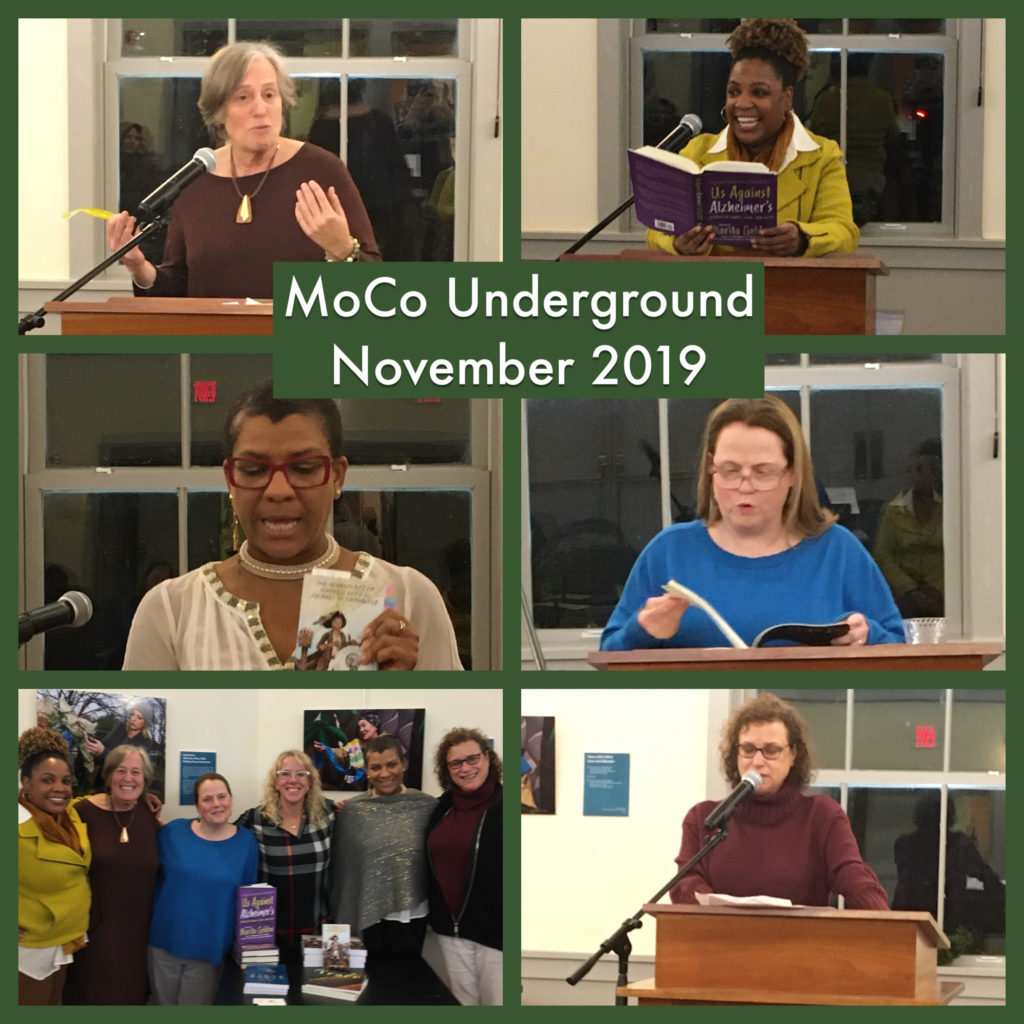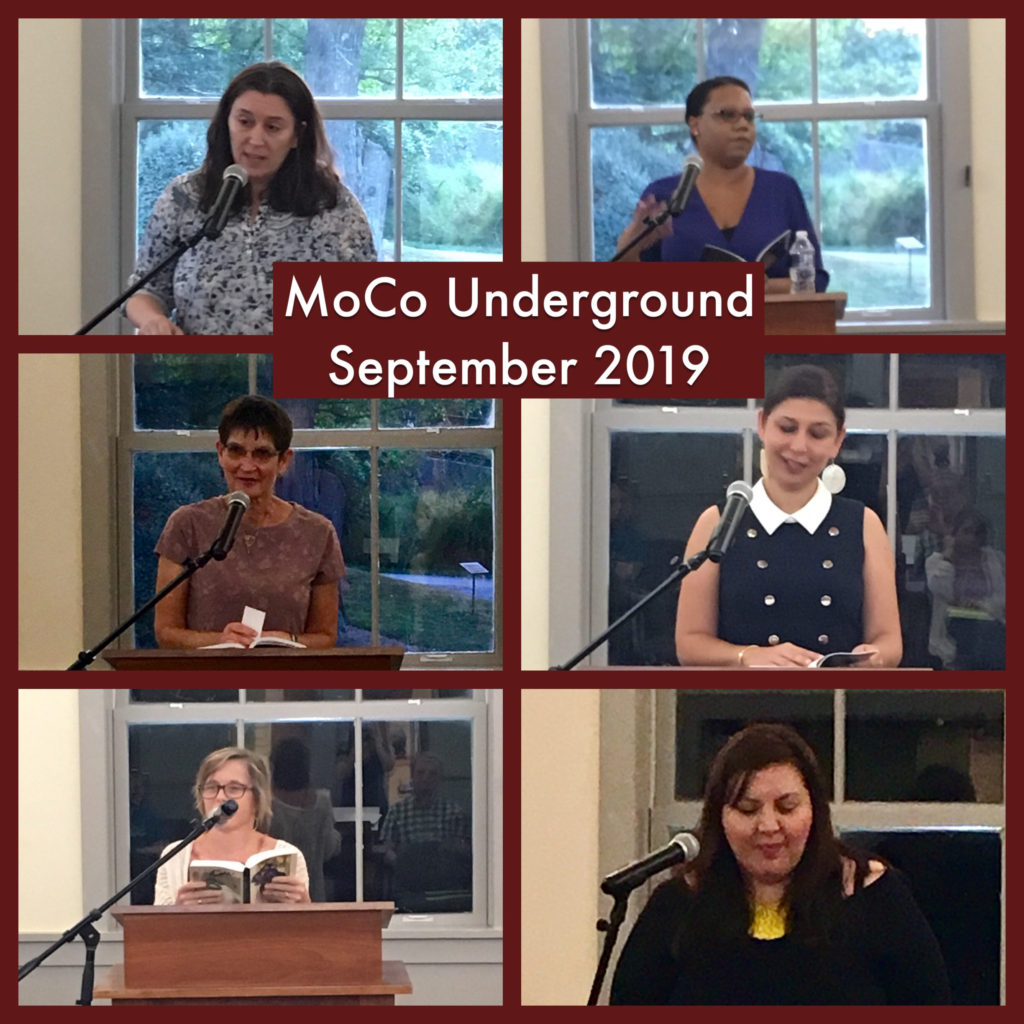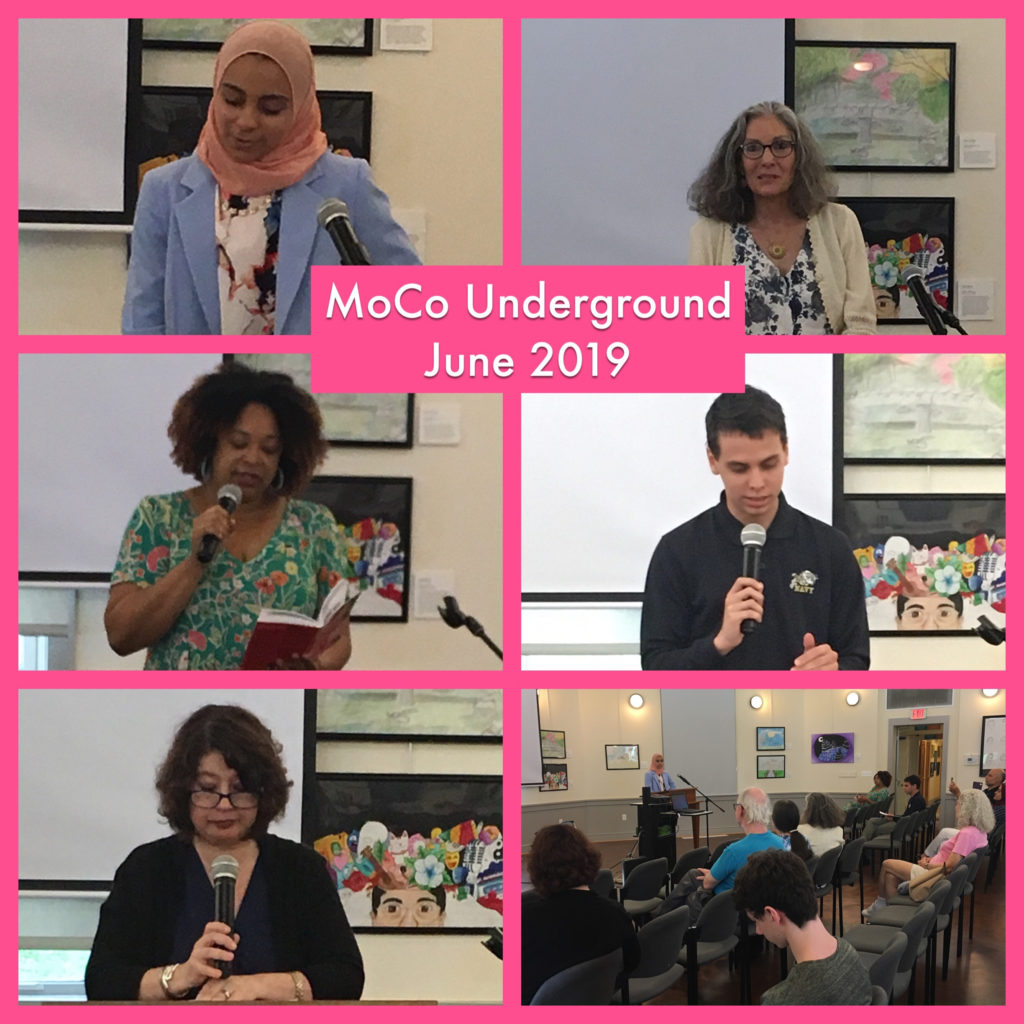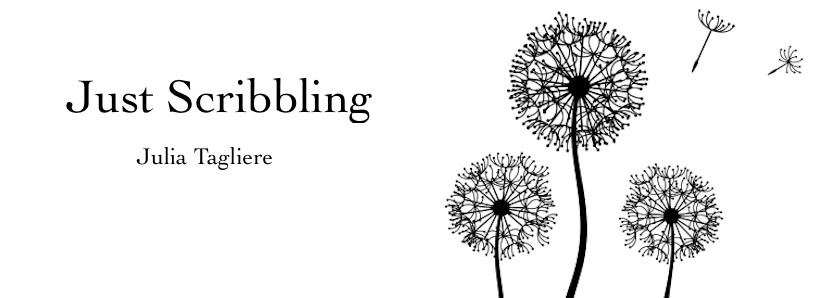it’s hard to believe, but we had our final reading for 2019 last month, and I’m already making plans for 2020’s readings! I have been humbled by the talent and gifts each of the beautiful writers who joined us this inaugural year brought: their wit and humor, their courage and honesty, their passion and generosity are boundless, and it was a joy to welcome each of them.
My goal for 2020 is to grow a little bigger with each reading, so if you haven’t joined us yet, as a writer or as an audience member, I hope you’ll take a look at the 2020 dates and make some time to come out and show the writers in our community some love–I can promise, you won’t regret it. If you have already joined us, I hope to see you again soon.
Wishing all of you peace and love and purpose in 2020!
#MoCoUnderground #holdyourlighthigh #welovewriters



